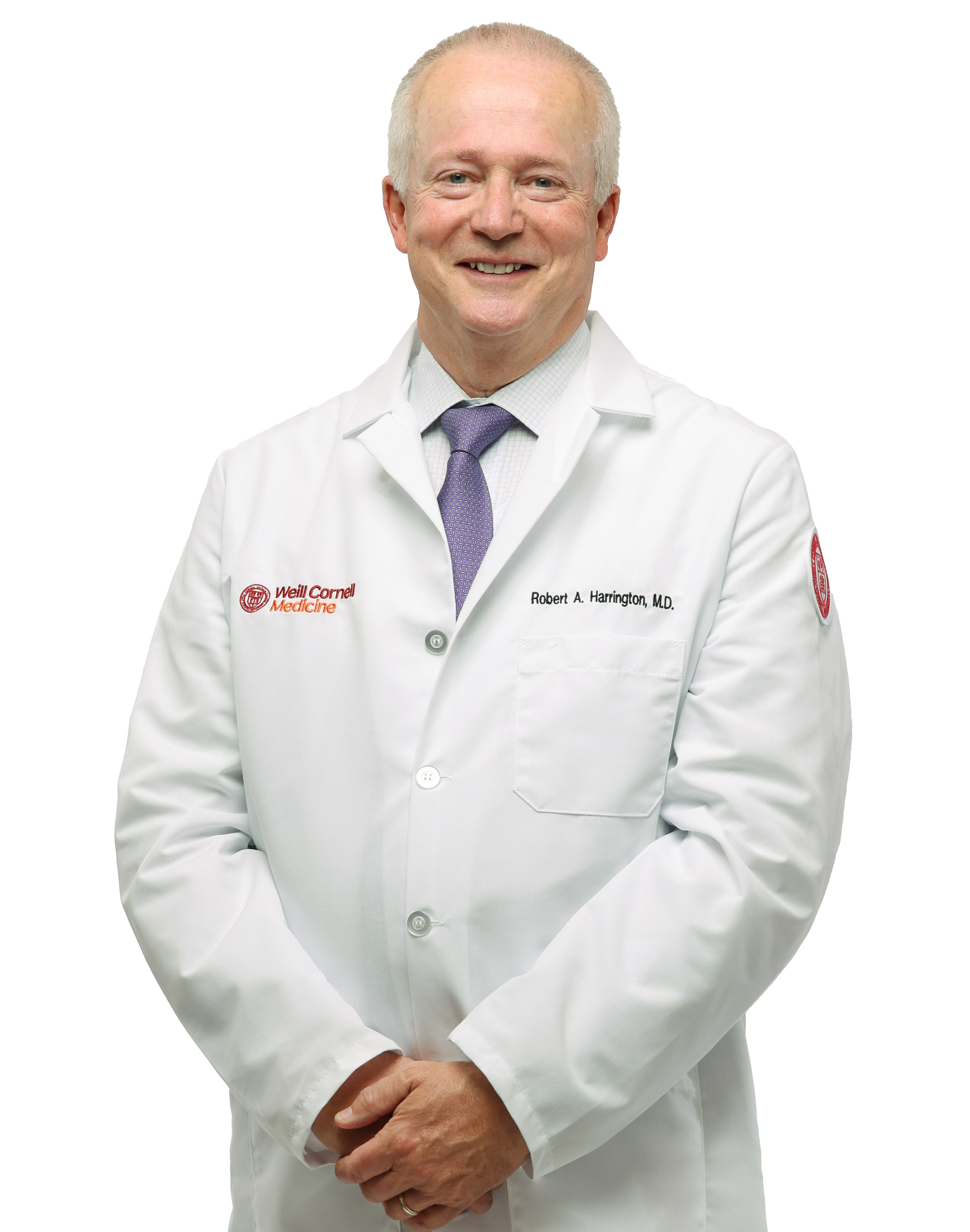
In June of this year, Dr. Robert A. Harrington was named the Stephen and Suzanne Weiss Dean of Weill Cornell Medicine and Cornell University’s provost for medical affairs. Dean Harrington, the former chair of Stanford University’s Department of Medicine, is a cardiologist and past president of the American Heart Association. Previously, he served as the Richard Sean Stack, M.D. Distinguished Professor and director of the Duke Clinical Research Institute at Duke University. Originally from Massachusetts, Dean Harrington and his wife, Rhonda Larsen, have four adult daughters and six grandchildren.
He recently sat down with Lucille M. Ferraro, assistant vice provost for external affairs, to speak about his vision for leadership at Weill Cornell Medicine and the impact of philanthropy on academic medicine.
LF: What attracted you to the position of Dean at Weill Cornell Medicine?
RH: I wasn’t looking for a job, but when you hear Weill Cornell Medicine, you listen. This is a great place that wants to be even greater. And as I talked to more people and came for a visit, I knew it offered the opportunity for a leadership role that would help guide this top academic medical center through the next stage in its journey. I was also excited about the opportunity to think globally, because there are parts of Weill Cornell Medicine that are truly global. The major diseases of the United States are also the major diseases worldwide, and we ought to be looking at how we can solve problems from a global perspective. Academic medical centers in the U.S. have a social responsibility and that includes a global social responsibility,
LF: How would you describe yourself?
RH: If you asked people, “Give me one word to describe Bob Harrington,” I’m going to guess that ‘collaborator’ would be in the top three. That’s one of the hallmarks of my leadership.
LF: What is important to you as Dean of a leading academic medical center like Weill Cornell Medicine?
RH: Academic health systems have an obligation to give back and to try to make society better, and I take that obligation very seriously. Diversity, inclusion and excellence are all important to me, as well as being an innovator – being out in front. It’s about diversity of ideas, diversity of background and diversity of experiences. Every aspect of that contributes to richer science, better health care and better education.
LF: Can you elaborate on that?
RH: No matter what we do, diversity makes us better. If you’re seeking excellence, you must be diverse and inclusive. There’s just no alternative. There’s also the moral aspect of including people in conversations who have previously been excluded, and that means communities that may not have been offered the same opportunities. For me, bringing together what’s right with what we know works is an important component of how I think about diversity.
LF: You’ve served as a mentor through much of your career. What does mentorship mean to you?
RH: Mentorship is the foundation for academic success and maybe even academic well-being. I’ve been fortunate to have a team of mentors over the years whom I still rely on. Mentors can provide guidance and advice, and that’s an important part of one’s professional development. I spent a lot of time in my past leadership roles helping to establish mentorship programs, and I hope to do the same at Weill Cornell Medicine.
LF: Our ambitious $1.5 billion We’re Changing Medicine campaign has galvanized our donors and alumni, raising more than $1.2 billion in just a few short years. What does a call to “change medicine” mean to you?
RH: I love the campaign name, We’re Changing Medicine, because that’s what a place like Weill Cornell Medicine should be doing. We need to push the boundaries across our mission areas – in research and in medical education – and change health-care delivery systems to provide equitable care to the communities we serve. Donors can help us push those boundaries.
LF: Weill Cornell Medicine is fortunate to have a dedicated donor and volunteer community, with several families connected to us over multiple generations. In your experience, what inspires donors to build such a strong bond with an institution?
RH: It’s about human connections, and I think that’s very special. What I always love – and I love this in my social circle as well as my professional circle – is learning why people are passionate about something. Because it’s in that storytelling that you start to understand an organization or an institution. I want to understand what’s important to donors so I can think about it in my own leadership. I’ll incorporate those stories into how I view my role, which is the steward of an institution.
LF: Why is philanthropy such a vital part of academic medicine?
RH: We want to do groundbreaking research, we want to have innovative education, and we can't do it without the help of philanthropy. I love the development part of medicine because it gives you an opportunity to work with people who want to help you do the things you otherwise couldn’t do.
LF: What are your thoughts about the doctor-patient relationship and how it relates to philanthropy?
RH: Leading gifts often come from grateful patients who ask their doctors how they can help. Some faculty members and clinicians don’t feel comfortable with that conversation, but I’ve found that donors really want to learn about the research. What we’re talking about is asking for the right thing. How could anyone think it’s not a good idea to support cures for cancer, for example?
LF: What do you think inspires giving?
RH: Opportunity. Change. Innovation. Advancement. Cure. We have a tremendous opportunity to grow science here and to make the sorts of discoveries that will inspire people to give willfully, thoughtfully and generously, and change medicine in a meaningful way. Our donors can help us realize what is possible.
